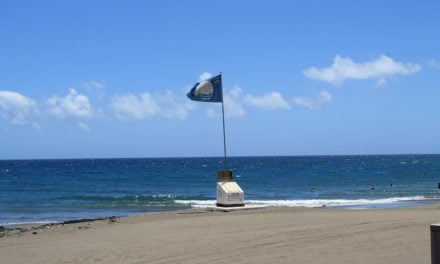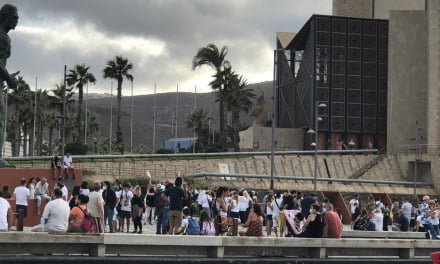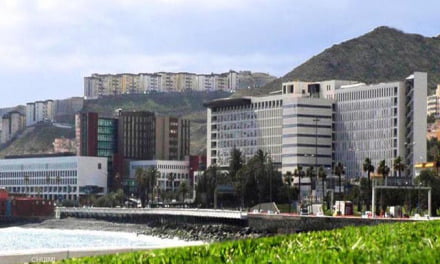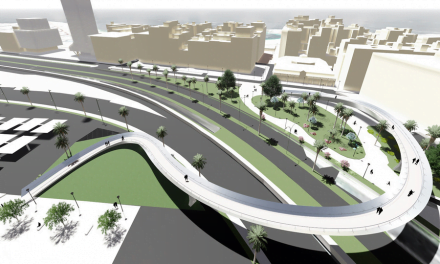Gran Canaria – The Canary Islands’ High Court of Justice (TSJC) has upheld the annulment of the urban planning for El Hornillo, a contentious development project in Gran Canaria’s tourism heartlands of San Bartolomé de Tirajana. The judgment reaffirmed a previous ruling by the Administrative Court Number 4 of Las Palmas de Gran Canaria, which in May 2021 nullified the municipal town hall’s already approved plans for a commercial park and over 300 homes.
 El Hornillo, a sprawling 171,000 square-meter area situated between the Southern GC1 motorway and the urban Sonneland, has been at the centre of a protracted legal and administrative battle. The TSJC’s decision, dated October 26, confirms the nullity of the agreement made by the Local Government Board on June 13, 2019. This ruling not only impacts the proposed commercial park but also halts the associated projects of parceling, expropriation, and urbanisation that were greenlit by the local government two years prior.
El Hornillo, a sprawling 171,000 square-meter area situated between the Southern GC1 motorway and the urban Sonneland, has been at the centre of a protracted legal and administrative battle. The TSJC’s decision, dated October 26, confirms the nullity of the agreement made by the Local Government Board on June 13, 2019. This ruling not only impacts the proposed commercial park but also halts the associated projects of parceling, expropriation, and urbanisation that were greenlit by the local government two years prior.
The conflict, which has been brewing for seven years, represents a complex clash of interests between property owners and municipal administration. The judicial decision underscores the rigorous scrutiny that urban development projects in the Canary Islands must undergo, particularly regarding compliance with land use and environmental regulations.
Despite two adverse court rulings and the obligation to pay legal costs, the municipal government of San Bartolomé de Tirajana is reportedly considering an appeal to the Supreme Court. Th El Hornillo project involves high stakes for the local economy and urban landscape.
The TSJC’s ruling has the potential to influence economic growth, sustainable urban planning and the rules around environmental stewardship. It highlights the challenges faced by local governments in navigating complex regulatory frameworks while striving to meet development goals.
Overturned by Court Ruling
The judicial ruling by the Juzgado de lo Contencioso-Administrativo número 1 de Las Palmas de Gran Canaria, presided over by Magistrate Alfonso Silos López de Haro, thus nullifies the local government’s agreement dated November 20, 2020, which had approved the project. The plan included the construction of a commercial centre, featuring major businesses like Mercadona, Decathlon, and McDonald’s, and the development of 300 homes across a 170,000-square-meter area in El Hornillo-Sonneland.
The Basis of the Legal Challenge
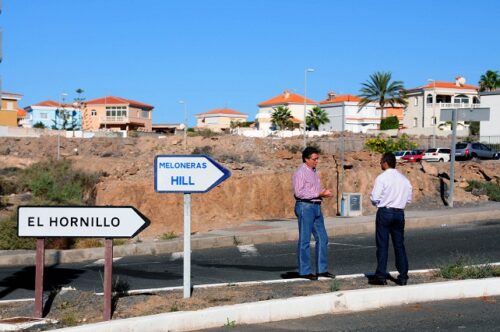 The judge’s decision came in response to a lawsuit filed by two property owners who claimed to be adversely affected by the project. The legal challenge revolved around the legitimacy of the land ownership involved in the project. The court found that the San Bartolomé de Tirajana municipality had approved the project despite clear controversies regarding the ownership of key plots of land. This oversight was considered a significant legal misstep, leading to the annulment of the projects related to parceling, urbanization, and expropriation under the plan.
The judge’s decision came in response to a lawsuit filed by two property owners who claimed to be adversely affected by the project. The legal challenge revolved around the legitimacy of the land ownership involved in the project. The court found that the San Bartolomé de Tirajana municipality had approved the project despite clear controversies regarding the ownership of key plots of land. This oversight was considered a significant legal misstep, leading to the annulment of the projects related to parceling, urbanization, and expropriation under the plan.
The lawsuit highlighted “reasonable doubts” about the ownership of various lands involved in the project, which constituted an important part of the action unit. These doubts were critical because the promoters needed to secure 70% of the surface area for the project to proceed under a streamlined procedure.
Previous Legal Precedents and Findings
The controversy around at least three of the four plots in question had been previously addressed by the Juzgado de lo Contencioso-Administrativo número 4 de Las Palmas de Gran Canaria, and the verdict was later ratified by the Tribunal Superior de Justicia de Canarias (TSJC). The court noted that the municipality should have acknowledged these ownership disputes. Instead, it erroneously granted land ownership to the project developers, Sonneland Inversiones and Borneriña.
The ruling included analysis from two conflicting expert reports, one by Fernando de Vidania Rozas, representing the plaintiffs, and another by José Valentín Mateo Flores, on behalf of the Compensation Board of the initiative. Both reports reached starkly different conclusions regarding the land ownership.
Implications and Next Steps
Magistrate Silos López de Haro emphasized that such land ownership disputes fall under the jurisdiction of civil law, not the municipality. The ruling underlines that when land ownership is questionable, the administration must declare it as such and leave resolution to the appropriate civil jurisdiction.
This verdict follows the principles outlined in the Real Decreto 3288/1978, which stipulates that disputes over land ownership should be resolved by ordinary courts, and urban planning projects should merely note the dubious or litigious nature of such ownership.
The San Bartolomé de Tirajana municipality has been mandated to pay costs, and the decision allows for an appeal within 15 days to the TSJC. Urban planning in the south has long been scrutinised, due to various instances of irregularities being detected after license have been granted, and even after developments have been completed. The focus these days is on trying to ensure that all such decisions adhere to the law and serve the general good.
The Regional High Court’s decision represents a significant moment in the ongoing tension between urban development and legal compliance on Gran Canaria. It underscores the importance of adhering to property laws and the need for rigorous due diligence in large-scale development projects. The case holds the potential to have a considerable impact on future urban development projects in the region, highlighting the need for transparent and legally sound practices in land development.








